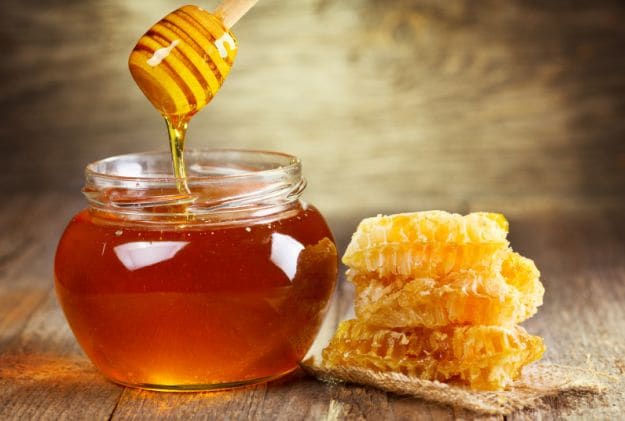Honey is a natural product that can be enjoyed year-round, including during the winter months. Here are some things to know about honey in winter:
- Honey Storage: Honey does not spoil, and its long shelf life means you can store it throughout the winter and beyond. Keep it in a cool, dry place, and make sure the lid is tightly sealed to prevent moisture from getting in.
- Crystallization: Honey can crystallize over time, especially in colder temperatures. Crystallization is a natural process and doesn’t mean the honey has gone bad. If your honey crystallizes, you can gently heat it to return it to its liquid state by placing the container in warm (not hot) water or using a microwave at low power in short bursts, stirring in between.
- Winter Honey Varieties: Different types of honey are available, and some are more prevalent in certain seasons. For example, honey from fall flowers, such as aster and goldenrod, is typically harvested in the late summer or early fall. Honey from bees foraging on winter blooms like heather and manuka may be available during the winter months.
- Uses in Winter: Honey can be used in various ways during the winter. It’s a natural sweetener that can be added to hot beverages like tea or used in recipes for baking, cooking, or making sauces. It’s also commonly used to soothe a sore throat or cough by mixing it with warm water or herbal remedies.
- Honey and Health: Honey is often associated with health benefits, including its potential to boost the immune system. It contains antioxidants and may have antibacterial properties. However, it’s important to consume honey in moderation, as it is calorie-dense and high in natural sugars.
- Local Honey: Many people prefer to buy local honey as it may help alleviate seasonal allergies. Consuming honey produced in your area may expose you to small amounts of local pollen, potentially reducing allergy symptoms.
- Bees in Winter: Honey production depends on the availability of nectar and pollen, which can be scarce in the winter. Honeybees cluster together in the hive to stay warm and conserve energy. Beekeepers often provide supplemental feeding to help bees survive the winter.
In summary, honey can be enjoyed during the winter, and its long shelf life and versatility make it a valuable addition to your kitchen. Whether used as a sweetener, for its potential health benefits, or to support local beekeepers, honey is a delightful and beneficial product in all seasons, including winter.



